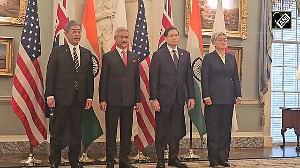The central government wants to impose the levy; many states are opposed – at least, to the Centre doing so

Is it legally permissible to impose the Goods and Services Tax (GST) on extra-neutral alcohol (ENA), an input in liquor making?
No one is quite sure at the moment. For, alcohol for human consumption or potable alcohol is outside GST. While, industrial alcohol is within it.
The central government wants to impose the levy; many states are opposed – at least, to the Centre doing so. They see this as their own prerogative - they currently levy value-added tax (VAT) and sales tax on ENA.
There is, however, counter-pressure from businesses. The pharmaceutical industry, for one, has been demanding inclusion of ENA within GST – if this happens, they can get input tax credit.
One company, Madhucon Sugar and Power, went to the Authority on Advance Rulings (AAR), an official body which is empowered to render an opinion on the tax consequences of a transaction or a proposed one.
The latter declined to issue any opinion, saying the GST Council (a Centre-states body) must first decide on the applicability to ENA. The issues, it noted, was already before the Council.
The Centre had sought the attorney general’s view on the matter, who gave a go-ahead, saying it was not fit for human consumption. So bringing it under GST would not require a Constitutional amendment.
“Suppliers of ENA are looking at colossal contingent liability on account of tax, interest, and penalty. In the event such liability matures, recipients of such supplies would be denied tax credit,” according to Rajat Mohan, partner at AMRG Associates.
ENA is a derivative of sugarcane molasses and used in a number of industries, from cosmetics to alcoholic beverages.
Almost 80 per cent of it is used in making potable alcohol. The rest is used by the pharma industry to manufacture cough syrups and by the cosmetics industry to make perfumes.
States also argued that if ENA goes under GST, they would not be able to monitor production of alcohol in the state.
“Technically, only alcohol meant for human consumption is excluded from GST.
"Therefore, any other kind of alcohol used for industrial purpose or inputs for production of alcohol should be covered within its ambit.
"Hopefully, the GST council will discuss this issue shortly since it has been pending for some time now,” according to Pratik Jain, partner, PwC India.
Photograph: Kham/Reuters












 © 2025
© 2025